June 6, 2016
Which is the Best Garden Mulch?
The selection of garden mulches at your local home improvement store is huge and widely varied, and it can be difficult to choose which type is best for you. Here we cover the basics of mulch, to make selection process simpler and easier!
Why Mulch?
Think of mulch as a long-term time-saver for your garden. Invest the time now in choosing and laying down a suitable mulch, and then you save time on watering and weeding throughout the season.
Mulch provides a shelter for plants from the sun, and helps plants to retain moisture longer. Many mulches also help to inhibit weed growth, especially if you lay down a barrier prior to applying the mulch.
Because mulch does screen out the sun, you don’t want to lay the mulch too thickly. Anywhere from 2 to 4 inches is a good amount. A good general rule is to apply 3-4 inches of mulch for the initial layer on a bed that wasn’t previously mulched, and then you won’t have to use as much when you go to freshen up your beds later on.
Types of Mulch
Here are the main types of mulches, and some of their pros and cons, to help you select the perfect one for your garden!
First, we will cover some common plant-based mulches, such as wood chips, pine needles, bark, and compost:
Bark
Bark is one of the more commonly used types of mulch. It is inexpensive, and comes in various sizes. It will eventually break down into the soil. Use larger pieces of bark around trees, shrubs, and larger plants. For delicate flowers, you will want to use the smaller pieces, so that the flowers aren’t overwhelmed by the mulch.
Wood Chips
Like bark, wood chips do a good job of helping your plants to retain water and nutrients. They sometimes come in colors such as red, dark brown, and black, so you can choose a color that works well with your landscape. The downside is that wood chips do deplete your soil of needed nitrogen, so you will need to supplement that with fertilizer.
Compost
Compost is a great choice for improving the quality of your soil, and its color, which is usually darker than the soil itself, makes a nice contrast to brightly colored plants. The only downside to compost is that it doesn’t decrease weed growth.
Grass Clippings
Grass clippings are free, and usually plenty of them are available to those who have large lawns. One tip is to NOT use grass clippings for mulch if your lawn has been chemically treated.
Shredded Leaves
Fallen leaves are also free, and make very good mulch, but you will want to shred them first, so that they break down faster and don’t block out too much of the sun’s warmth.
Pine Needles
Pine needles make a great mulch, and have the added advantage of making the soil more acidic. This makes pine needles an ideal mulch for plants such as rhododendrons, azaleas, camellias and blueberries. Alas, while this is a common type of mulch in areas with lots of evergreen trees (such as the Pacific Northwest), pine needles may not be available everywhere.
Next, we have the non-vegetative mulches, such as stones and rubber mulch.
Stones
Stones in a planting bed, whether pebbles, river rock, or just large accent stones, add a certain natural beauty and charm to your landscape that few other items do. They do a good job of inhibiting weed growth, as well. And they will last for years. They just don’t add any nutrients to your plants.
So for this reason, stones work well around trees and other large, well-established plants, such as shrubs, but you wouldn’t want to use them in flower or vegetable gardens.
Rubber Mulch
Like stone, rubber mulch lasts a very long time, however, is a non-organic material, and doesn’t provide any nutrients to plants.
That said, rubber mulch is a great choice for walkways and children’s play areas, because the rubber provides a level of impact absorption and “bounce”. It is also safe to use around plants, so might be a good choice for an out-of-the-way area with well-established shrubs, where you don’t want to have to re-mulch for a good long while.
Regardless of which mulch you choose, garden mulch is a great and inexpensive addition to your yard. The best part is that it provides a professionally-landscaped appearance at a DIY price, and is something that virtually anyone can apply.
by See Jane Drill, Copyright 2016, All Rights Reserved

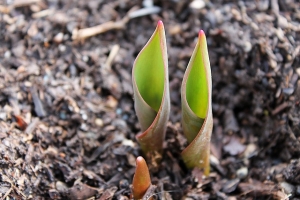
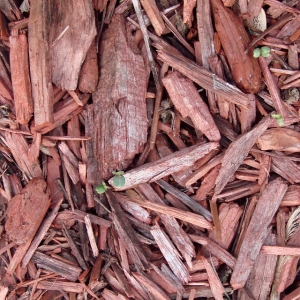
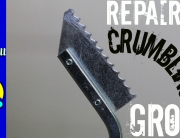
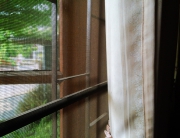
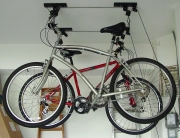
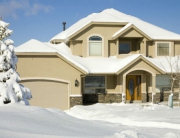
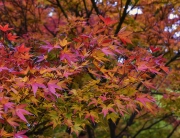
Leave A Comment